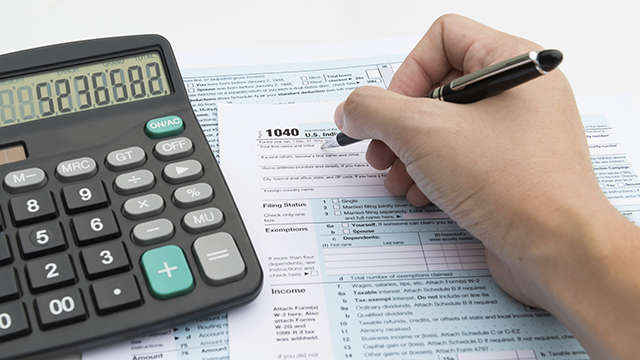Limitations of Financial Accounting
Financial accounting permits alternative treatmentsAccounting is based on concepts and it follows ” generally accepted principles” but there exist more than one principle for the treatment of any one item. This permits alternative treatments with in the framework of generally accepted principles. For example, the closing stock of a business may be valued by anyone of the following methods: FIFO (First-in- First-out), LIFO (Last-in-First-out), Average Price, Standard Price etc., but the results are not comparable.
Financial accounting does not provide timely information
It is not a limitation when high powered software application like HiTech Financial Accenting are used to keep online and concurrent accounts where the balance sheet is made available almost instantaneously. However, manual accounting does have this shortcoming.
Financial accounting is designed to supply information in the form of statements (Balance Sheet and Profit and Loss Account) for a period normally one year. So the information is, at best, of historical interest and only ‘post-mortem’ analysis of the past can be conducted. The business requires timely information at frequent intervals to enable the management to plan and take corrective action. For example, if a business has budgeted that during the current year sales should be $ 12,00,000 then it requires information whether the sales in the first month of the year amounted to $ 10,00,000 or less or more?
Traditionally, financial accounting is not supposed to supply information at shorter interval less than one year. With the advent of computerized accounting now a software like HiTech Financial Accounting displays monthly profit and loss account and balance sheet to overcome this limitation. Financial accounting is influenced by personal judgments’Convention of objectivity’ is respected in accounting but to record certain events estimates have to be made which requires personal judgment. It is very difficult to expect accuracy in future estimates and objectivity suffers. For example, in order to determine the amount of depreciation to be charged every year for the use of fixed asset it is required estimation and the income disclosed by accounting is not authoritative but ‘approximation’.
Financial accounting ignores important non-monetary information
Financial accounting does not consider those transactions of non- monetary in nature. For example, extent of competition faced by the business, technical innovations possessed by the business, loyalty and efficiency of the employees; changes in the value of money etc. are the important matters in which management of the business is highly interested but accounting is not tailored to take note of such matters. Thus any user of financial information is, naturally, deprived of vital information which is of non-monetary character. In modern times a good accounting software with MIS and CRM can be most useful to overcome this limitation partially.

Major Limitations of Financial Accounting
Supplies Insufficient Information:
Financial accounting provides the information about the financial activities as a whole and not individual-wise, i.e., it does not record information relating to product-wise, department-wise etc.
Controlling Cost not Possible:
In financial accounting control of cost is not possible since the costs are known at the end of the financial year or a specified period of time whether the expense or cost has already been incurred, i.e., nothing can be done to control either the account of expense or the cost. In other words, if it is even found that a particular cost is more, it is not possible to control it.
But the same is possible only when the cost accounting system is being introduced.
Historic in Nature:
Since the financial accounting records all transactions relating to a particular period, it is rather historic in nature. In short, present financial information relating to a past period and not for the future although all financial decisions are taken on the basis of past financial data.
Recording Actual Cost:
The financial accounting records the actual cost only, the historical cost of the assets. The value of assets may be changed, but record only the cost of acquisitions of such assets. In other words, financial accounting does not record the price fluctuations or change in price level. As a result it does not present the correct information.

Measurability
One of the biggest limitations of accounting is that it cannot measure things/events that do not have a monetary value. If a certain factor, no matter how important, cannot be expressed in money it finds no place in accounting. Some very important qualities like management, loyalty, reputation, etc find no place on the balance sheet or the income statement.
No Future Assesment
The financial statements show the financial position of the firm on the date of preparation. The users of the statement are more interested in the future of the company in the short term and long term. However, accounting does not make any such estimates.
And due to the dynamic nature of the business environment, a lot can change between such dates. Auditors sometimes do disclose the important events occurring after the balance sheet date to rectify these limitations of accounting.
Historical Costs
Accounting often uses historical costs to measure the values. This fails to take into consideration factors such as inflation, price changes, etc. This skews the relevance of such accounting records and information. This is one of the major limitations of accounting.
Accounting Policies
There is no global standard in accounting policies. In India, we follow the Accounting Standards. Americans follow the GAAP and then there are the international standards, namely the IFRS. And if a global company operates in more than one country, there may be confusion.
Not all accounting policies follow the same line of thinking, and conflicts may arise due to this. It has long been said that the whole world must agree on uniform accounting policies but this has not happened yet.

Time Value of Money
Under the accounting system, money value is treated constantly. But the value of money always changes due to inflation. Under existing accounting systems, accounts are maintained considering historical cost ignoring current changed value. As a result, the accounts maintained fail to exhibit the exact financial position of a business concern.
Recommendation of alternative methods
There exists an application of alternative methods in determining depreciation of assets and valuation of stock etc. Information regarding the activities of the business is expressed in a misleading way if an alternative method is used to achieve a particular object.
Importance of form over substance
At the time of preparing accounts for a particular period, the emphasis is laid on the form, table, etc. instead of giving importance to an exhibition of substantial information. As per Company Act, preparation of the balance sheet in the prescribed form is mandatory.
Although there are some limitations in the present accounting system, accounting in the present-day world has generally been accepted as a recognized profession. Efforts are on throughout the world to overcome these limitations. Economic activities of any society without accounting are neither possible nor legal.
Overall Performance:
Financial accounting discloses and reports profitability or otherwise of the business as a whole. Since it does not classify accounts on the basis of departments or segments, products, processes and sales territories, it fails to provide information about costs and profit of these sub-divisions of the organisation.
No Objective Classification:
In financial accounting, accounts are classified under two major groups, viz., and personal and impersonal. Such a primary classification made subjectively, is of little use to management to ascertain costs by products, jobs and processes.





Recent Comments